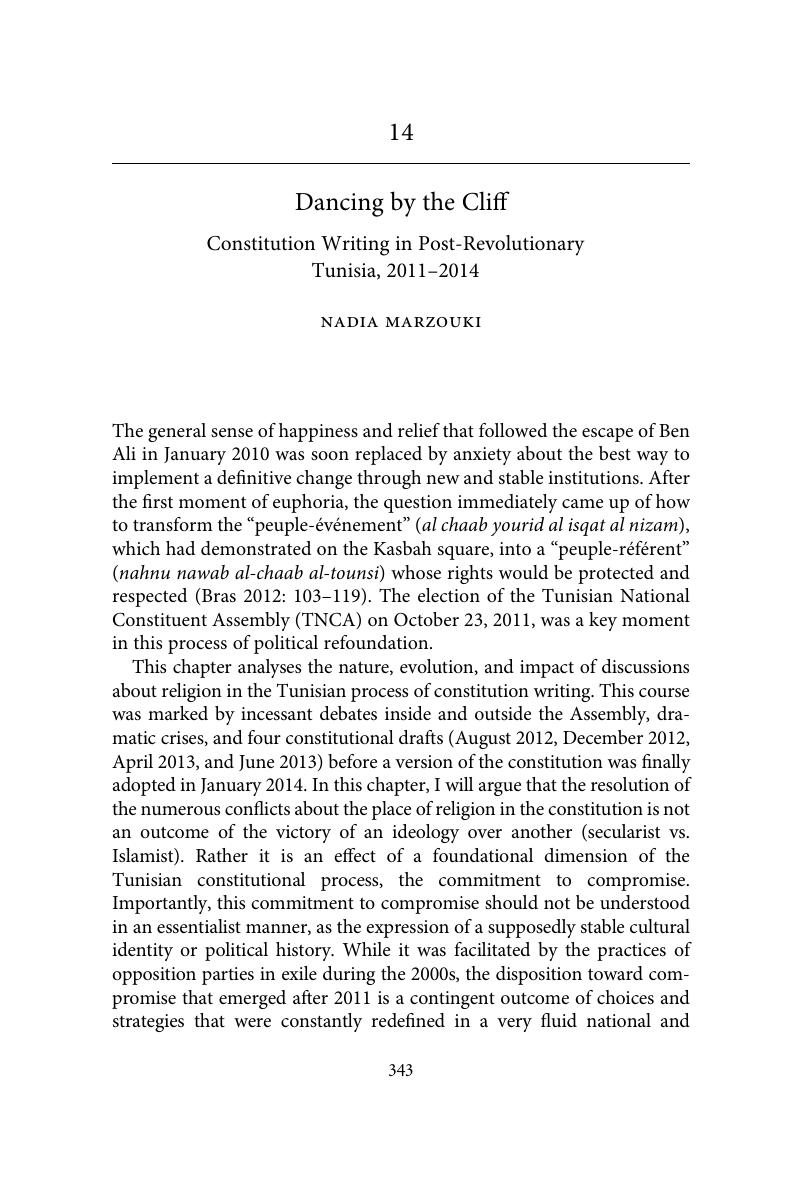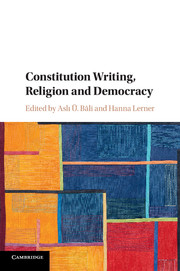Book contents
- Constitution Writing, Religion and Democracy
- Constitution Writing, Religion and Democracy
- Copyright page
- Contents
- Contributors
- Acknowledgements
- 1 Introduction
- Part I Constitution Writing and Religion under Limited Sovereignty
- Part II Postcolonial French-Influenced Constitution Writing and Religion
- Part III Postcolonial South Asian Constitution Drafting and Religion
- Part IV Constitution Writing and Religion in Contemporary Middle East
- 11 Constitutional Impasse, Democracy, and Religion in Israel
- 12 Islam and Constitutionalism in the Arab World
- 13 The Politics of Sacred Paralysis
- 14 Dancing by the Cliff
- Part V Lessons from the Cases
- Index
- References
14 - Dancing by the Cliff
Constitution Writing in Post-Revolutionary Tunisia, 2011–2014
from Part IV - Constitution Writing and Religion in Contemporary Middle East
Published online by Cambridge University Press: 23 February 2017
- Constitution Writing, Religion and Democracy
- Constitution Writing, Religion and Democracy
- Copyright page
- Contents
- Contributors
- Acknowledgements
- 1 Introduction
- Part I Constitution Writing and Religion under Limited Sovereignty
- Part II Postcolonial French-Influenced Constitution Writing and Religion
- Part III Postcolonial South Asian Constitution Drafting and Religion
- Part IV Constitution Writing and Religion in Contemporary Middle East
- 11 Constitutional Impasse, Democracy, and Religion in Israel
- 12 Islam and Constitutionalism in the Arab World
- 13 The Politics of Sacred Paralysis
- 14 Dancing by the Cliff
- Part V Lessons from the Cases
- Index
- References
Summary

- Type
- Chapter
- Information
- Constitution Writing, Religion and Democracy , pp. 343 - 370Publisher: Cambridge University PressPrint publication year: 2017
References
- 1
- Cited by



